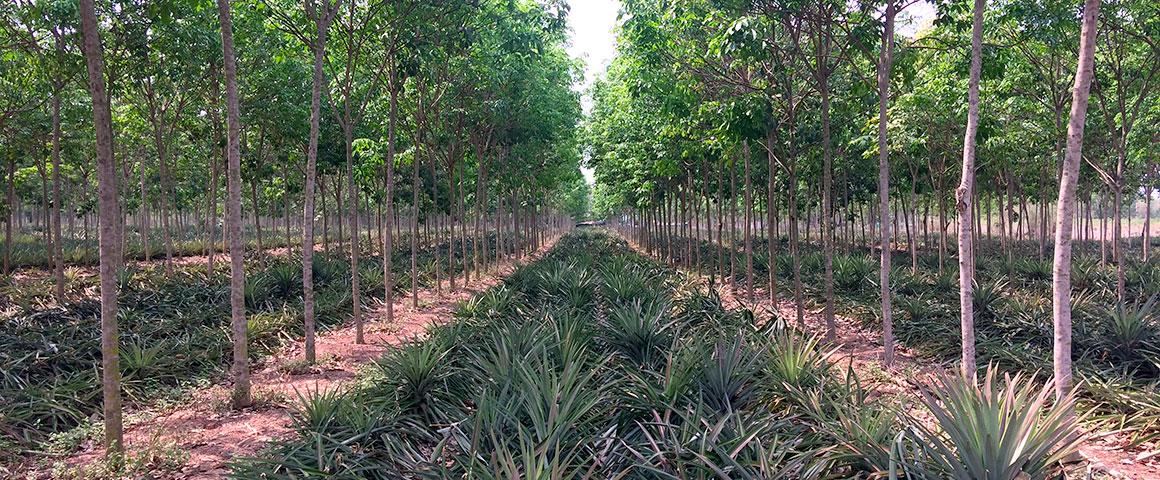- Home
- About us
- Research units
- ABSYS
AgroSystèmes Biodiversifiés - UMR ABSys

Intercropping pineapple with immature rubber trees in village plots in Thailand © A. Thomazeau, CIRAD
Working on tree crops leads agronomists to consider their specificities, such as the existence of "memory effects" over several years and the fact that such systems are difficult to transform quickly. Systems associating several species call for studies of the often complex interactions between plants and between practices.
Civil society in the global North is clearly committed to fostering the agroecological transition. In the countries of the global South, that commitment is much less clear at present, but we are convinced that change will come within the next few years, as a transition is also vital in those countries. Our expertise in terms of research, training and appraisals, and our networks of partners, offer a solid base to support these changes and promote the knowledge we produce.
The transition will necessarily be multi-faceted, including the mobilization of structural and functional diversity - agrobiodiversity - and recycling strategies on various scales, etc. A successful agroecological transition will mean combining various sets of levers. We are studying the conditions for the dissemination and contextualization of these types of innovative cropping systems.
























